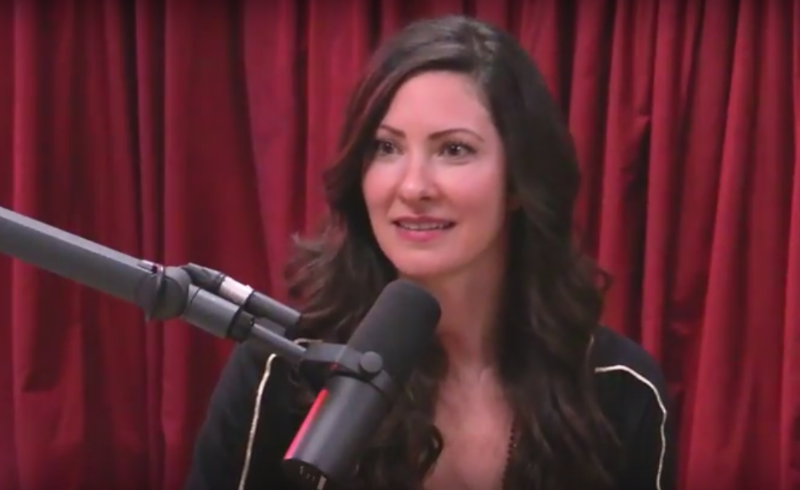As a long-time feminist, Dr. Kelly Brogan said she used to view birth control as a “female entitlement,” but now she warns that it may be the “ultimate tool for oppression of the modern women.” Popular podcaster Joe Rogan recently interviewed the holistic psychiatrist on The Joe Rogan Experience. In the first 15 minutes of the thought-provoking, unhurried three-hour interview, Dr. Brogan discusses her own experience with hormonal birth control and the impact it has on women. Kelly Brogan’s views on pharmaceuticals go way beyond the scope of this blog, and while I tend to agree with her about the dangers of pharmaceuticals, I know some of our readers won’t go along with her position on topics like mental health treatment. However, on hormonal birth control, which are heavy duty drugs designed to fix something that’s not broken (a healthy fertility system), she nails it. Here is what she has to say.
Cyclical living: it’s a good thing
Dr. Brogan reports that she was on birth control for 12 years, during which time she was completely out of touch with the cycles of her body. On birth control, “you are like a man, like a flat line the whole month.”
After having children, she found empowerment in embracing “cyclical living,” working with the variations in energy of her natural cycle.
“You have totally different kind of energy over the course of the month,” she explains, whether you feel like socializing or staying in, needing more sleep or less. “If you know how to work with it, it’s so much more powerful than just having artificial birth control hijacking your endocrine system.”
She reports that for her, getting off birth control was declaring a “truce” with her body.
While women put a lot of hope in birth control to enable them to be free to live their life without the “fear of being trapped,” it’s an illusion that pharmaceuticals are the perfect answer.
“It’s the magic pill illusion,” she declared. “There’s no free lunch, there’s never going to be something that will just fix it for you and you just waltz off into the sunset. There’s always a cost.”
The true cost of hormonal birth control
We’re told we can use birth control to just “take over” our sex hormones, to rid ourselves of “the annoyance of periods and pregnancy,” as if our reproductive systems were one thread of a spider web that we can pull in isolation, but as Dr. Brogan demonstrates, it’s all interconnected. We’re discovering that hormonal birth control leads to serious secondary effects in the body like inflammatory response or depletion of nutrients.
“We’ve been trained to dismiss the risk as we attach to the promise, and collude in ignoring the risks,” Dr. Brogan said. The costs, she notes, range from “subtle alterations in the personality” to death from pulmonary embolism.
One high cost women pay for the convenience of birth control is that it becomes a “gateway drug” to other medications, Dr. Brogan said. As teens and women are prescribed birth control, their rate of antidepressant use rises accordingly, for example, she said. As women who are uninformed of the many known effects of suppressing their normal hormonal cycles find themselves not feeling themselves on birth control, they end up on multiple other medications to deal with the side effects. It’s an insidious situation that profits only the pharmaceutical industry.
What’s the alternative?
When Rogan asks Dr. Brogan what she uses for birth control, she explains only that she uses the ovulation calculator Daysy, an effective, temperature based device that allows a woman to know exactly which six days of the month she could possibly getting pregnant.
What Dr. Brogan leaves out is the essential information about other effective, evidence-based, natural Fertility Awareness Based Methods available to us that meet the various needs of diverse women.
By learning to practice an FABM, women can know their bodies, cooperate with the power of their fertility, accurately pinpoint which days of every cycle they are or are not fertile, and act accordingly, without the fear that drives them to resort to the costly option of birth control.
These many DIY Fertility Awareness Based Methods offer a range of more or less hands-on ways to manage your own fertility. They do let you declare a truce with your body and with your normal, healthy cycle. They not only allow you to plan if or when you get pregnant, but also offer other tremendously positive side effects.
Instead of leading to a range of side-effects and risks that reveal how contraceptives undermine a woman’s health, these methods offer deeper understanding of the body and great potential to monitor and heal your reproductive health through the many varied ways the body tells us what we need to know, when we learn how to interpret its messages.
As Dr. Brogan mentions, the US is one of three countries worldwide that allow drug companies to advertise to consumers. “Ask your doctor” for this medication, is the refrain of those ads. And ask we do. As a society, we get what we ask for. Let’s start asking for something better. Talk to your doctor about natural Fertility Awareness Based Methods. If enough women do, we’ll drive a long overdue revolution in women’s healthcare.








Kelly Brogan wrote an article about why Breast cancer rates are “skyrocketing “. I pointed out that breast cancer rates have been declining for the past twenty years. Within minutes my post was deleted and I was banned.
This type of behavior is unworthy of an adult human being, much less a “professional” to put your trust in.
Hi Dan,
I would like to know where you are citing your statistics, I am sorry your post was deleted as it may have had your resources cited. The NIH National Cancer Institute states “In 2017, it is estimated that there will be 252,710 new cases of female
breast cancer and an estimated 40,610 people will die of this disease”. And that the statistical rate has not climbed but neither has it dropped. Survival rates have risen. So it has indeed not “declined in 20 years”, not even close; the correlation between hormonal contraceptive use cannot be denied. We cannot change the chemical & hormonal make up of the human body without consequences. As an RN in Women’s Health, pregnancy and Labor & Delivery I see the consequences everyday. Have you perhaps noted the off the charts rates of infertility we have? We have a completely unregulated area of fertility treatments,buying and selling sperm & eggs, surrogacy and of course our favorite when the contraceptives fail (and trust me they do), abortion. As Dr. Brogan is “in the business” both professionally and personally I believe she knows her statistics and research that back up her position.
Thank you for sharing your thoughts on the topic.
https://seer.cancer.gov/statfacts/html/breast.html
Your link right here , and what you just said, disproves the notion the breast cancer rates have been “skyrocketing”.
Depending on the timeframe and precision, you could state that rates of incidence have been flat or slightly decreasing. Rates of death have been decreasing.
I believe (of course i cannot prove, that I simply showed the graph of cancer incidence under her statement about how rates are “skyrocketing “.
You know the data, you know she is wrong, and yet you defend her all the same. Strange.
I was fortunate 25+ years that I was able to take a class at IU Bloomington that taught women’s health so very thoroughly that I was able to FABM back then. It was very empowering and I hope that more young women are able to take control of their health and fertility with this information.